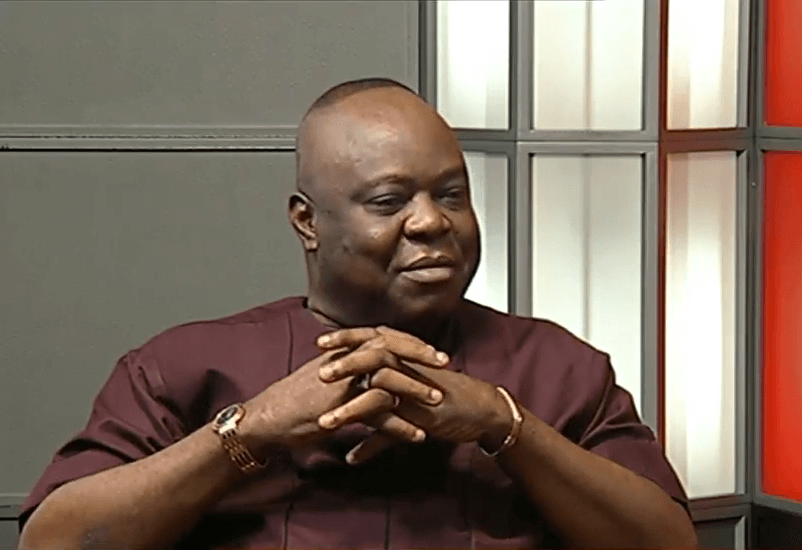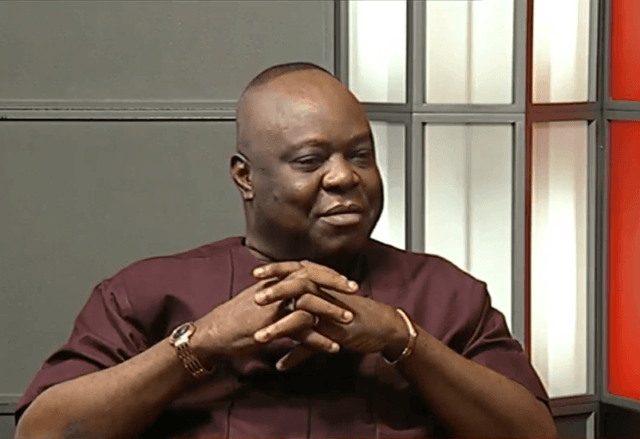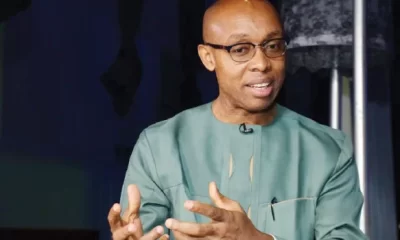Political Issues
Nigeria’s Roiling Political Crisis -By Dele Agekameh


Dele Agekameh
The news in the past week was dominated by familiar tales of woe, intrigue and uncertainty. From reports of massive killings in parts of the country to plausible and implausible tales of kidnap, there was more than enough to keep one brooding over the state of the nation and the direction we are headed towards. The fortunate thing about the times we live in is that the record of these events will be well preserved for posterity. This fact causes one to reflect and wonder how the realities of life today will be judged by future generations.
Over the weekend, we read about another spate of killings in Zamfara State by suspected “bandits”. These killings have been going on in Zamfara for well over a year, like many other coordinated attacks on innocent people in different parts of the country that have been repeatedly carried out for many years. Whatever the official position on these killings is, the fact is that there is sustained violence in the land, for seemingly differing motives by multiple perpetrators – Boko Haram, herdsmen or simply “bandits” as has been reported in Zamfara, and many more.
When one looks back in history to the accounts of periods like the Great Depression, one wonders whether the people who experienced the depression that shook the 1930s could have imagined what that tough period in their lives would come to mean in history. The Great Depression is considered the worst global economic downturn in history, and it spanned a period of ten years. Undoubtedly some were more affected than others, as people went about their daily lives, read the news and made plans like at any other period. In truth, they were living through history in that stretch of their lives.
These are tough times for Nigeria, even though we are recording some positive developments as we go. One wonders whether this period of sustained violence and political disorderliness will not be marked as a negative period in our history. The affairs of today have consequences in history that the current aristocracy seems unconcerned about. The burden of leadership is not concentrated in Aso Rock alone. It lies, however unequally, on the shoulders of the leading men and women whose lives and statuses inspire following, and whose influence determine, to a great extent, the direction of thought and action within their societal microcosm.
The danger of the lack of leadership that seems especially pronounced in the past seven years or so is that it springs up many interests, good or bad, that naturally seek to fill the perceived void in leadership. The lack of leadership expressed here, while not very complimentary of President Muhammadu Buhari, transcends that office and extends to every thought leader and political or native authority in the country. We can blame the president all we want, but the present realities of the country are a manifestation of failure at all levels, down to the individual citizen. There is a general failure to take responsibility; only that this failure is much more pronounced at the centre of power.
One very African consequence of an unsteady or unruly hold on power is the recourse to insurrection. With more than 200 insurrections occurring in Africa since 1960, there is a long history of political upheavals in the continent and about six governments have been uprooted in 31 separate attempts since 2010. Every time the subject is broached in Nigeria, it is dismissed as unlikely and completely insane in this era. However, when one looks at the security situation and the display of indiscipline by the current crop of politicians, it would be naïve to wave off the possibility of large scale insurrection in the country.
Whether Nigerians realise it or not, we have been edging dangerously close to that for a very long time. Our politics is still largely influenced by ‘strong men’ in agbada who have undauntedly empowered and embedded the military into our internal security apparatus more than they have developed internal security forces. If we examine the causes of uprising in Africa in the past eight years, the picture may be clearer on how close we may have come to a return, however briefly, to the days of rule by men in camouflage.
Beset by constant violence and uncertainty, Nigerians live in crippling fear and dismay. We watch as our political leaders and representatives struggle for their own ends, while the common man is left to his own devices. The pangs of hunger tears people apart from the inside when they are not being dismembered by terrorists within our midst. The suffering is palpable, especially outside metropolitan areas. It is this same neglect for people’s pain and calls for political and social reforms that led to the popular uprising in Egypt in 2011, not to mention many other cases like that in recent times in Africa.
Our dangerous dance with indiscipline and lack of leadership may need to be viewed through a more realistic lens. We are not immune to insurrections, no matter the assurances constantly given by top security chiefs who are known to be of one mind with money grubbing politicians, and whose appointments and promotions are largely political. History has shown that middle-ranked officers and those in the lower ranks are usually more removed from political entanglements. They are more in tune with the people, whose only entanglement with power is in their emotions, with feelings of dismay and discontent with the status quo.
A situation where the legislature actively works at cross purposes with the executive in a system that allows political vendetta to overshadow the functionality of government is a situation prone to intervention. The leadership of the country is wanting at the executive level and dubious at best in the legislature, with the judiciary traditionally bound by the constraints of legal neutrality or personal interest, or both. It is this crisis of leadership that manifests itself in wanton bloodbaths and indiscipline within all classes of society.
The young child that is mowed down by suspected herdsmen in Benue or “bandits” in Zamfara is as much a victim of bad leadership as the civil servant or pensioner in Ekiti or Abuja who cannot make ends meet because he is owed money by the government. There is a direct link between the lack suffered at the grassroots and the lack of leadership at the top. The chain of causation is never broken from the time a bad decision is taken or an omission is made at the top until the pain of suffering tears through the end victim at the lowest rung of society.
For all the talk of change and hope, we are seeing the same tactics employed by the same people in government. The static state of decay in Nigerian politics suffocates Nigerians and this extended period of decay seems to be unending. We are repeatedly mocked by our political leaders through their outrageous acts and insensitivity, while our institutions have also been turned into outlets for debauchery. The irony of the life of a Nigerian voter is that he is a participant in his own oppression by making bad decisions induced by empty promises or handouts.
Hopefully, honest men with integrity can save us from this destructive course before less palatable alternatives are conceived. There are many avenues through which our feeble democracy can unravel and it will take more than lip service for real change to begin to manifest. Our nomadic political cycle is not helping matters, if we are to be honest with ourselves, and one hopes that the political cattle holding the government hostage and their herdsmen could be herded into retirement pretty soon.
For comments, send SMS (Only) to 08058354382




















